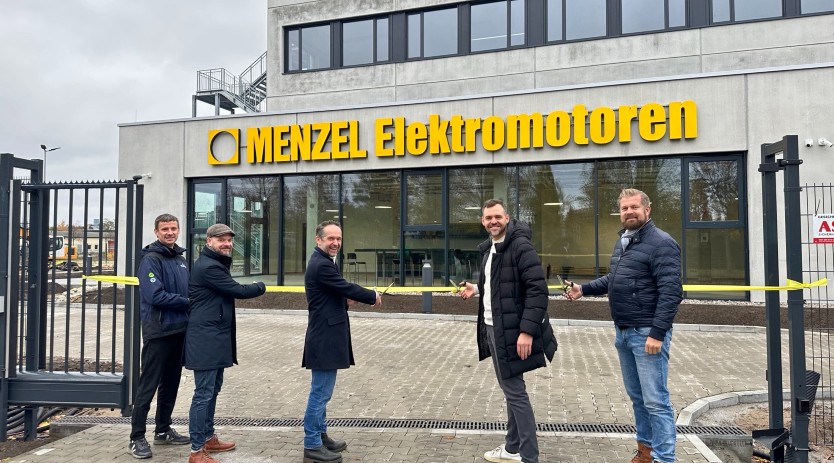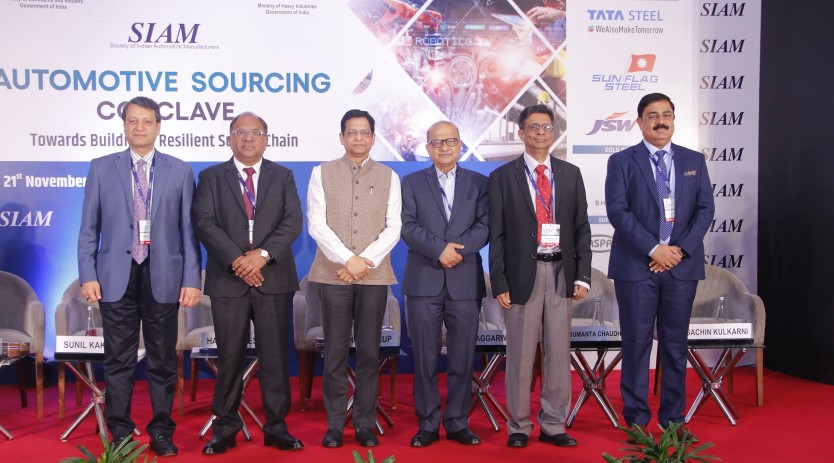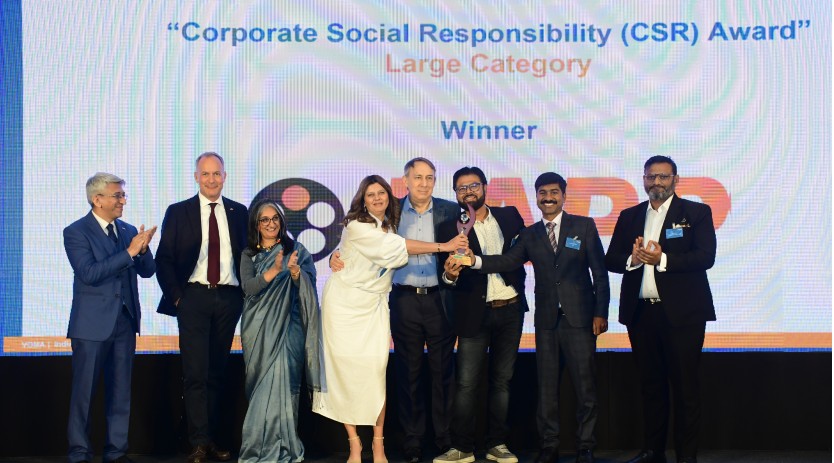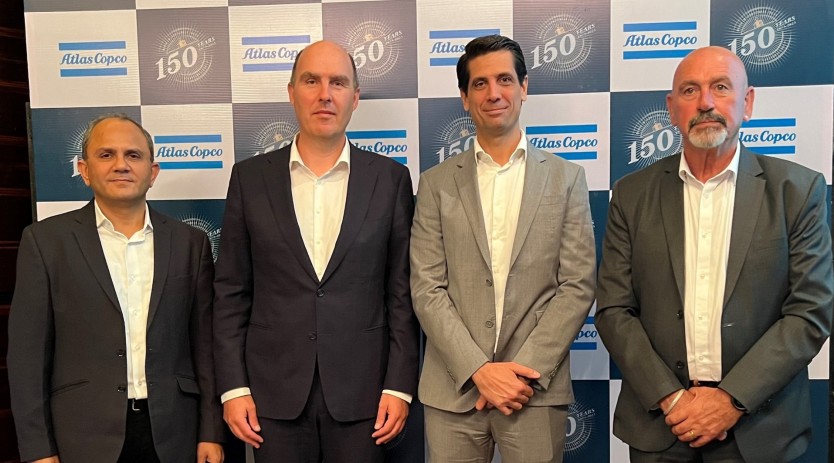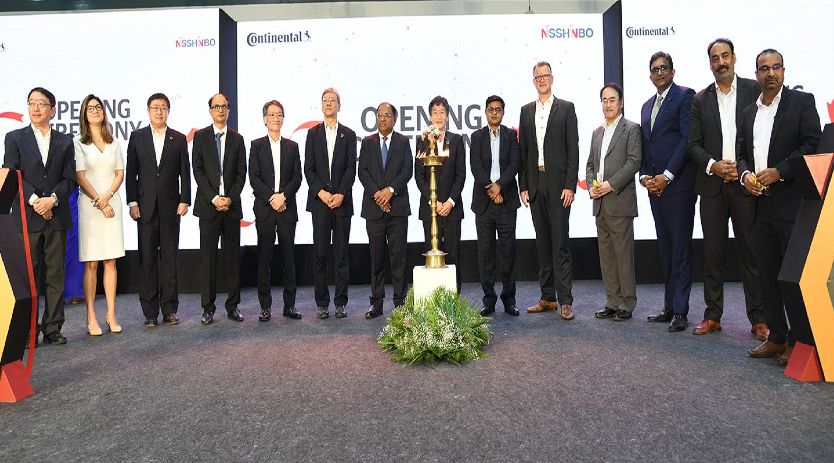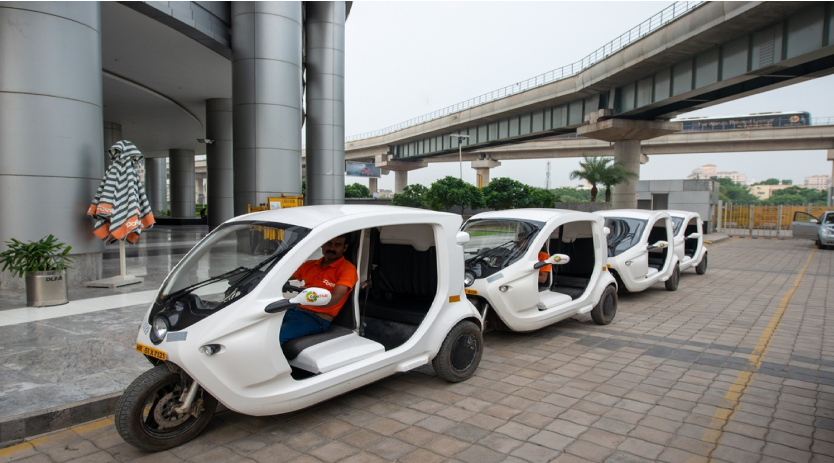A globally competitive manufacturing hub in making
June 30, 2015 3:26 pm
The ‘Make in India’ campaign, launched by Prime Minister Narendra Modi last September has indeed enthused the Indian manufacturing industry and brought in optimism and hope. The campaign is a blueprint that aspires to bolster domestic manufacturing by facilitating investments, fostering innovation, enhancing skill development, protecting intellectual property and building best in class manufacturing infrastructure within the country.
The Automotive Component Manufacturers Association of India (ACMA) is confident that the reform agenda of the government will lead to key positive results and create growth opportunities for the industry. ACMA is the apex body representing the interest of the Indian auto component industry. In an exclusive interview with Subhajit Roy, Ramesh Suri, President, ACMA talks about the opportunities, challenges and roadmap for the Indian auto component industry. He also suggests some reforms needed to make India a manufacturing hub.
Poised for exponential growthWhile the automotive sector has been under severe pressure for the last two years, the recent figures published by the vehicle industry body SIAM are indicative of the fact that the growth is gradually returning; in FY 13 -15, production of two-wheeler and three-wheeler registered a growth of 9.58 per cent and 14.33 per cent respectively while that of passenger vehicles grew by 4.28 per cent. The commercial vehicles sector, which has been a cause of concern, is expected to bounce back soon with production of M&HCVs recording a robust growth of 21.12 per cent during the last fiscal.
The component industry grows in tandem with the vehicle industry. “The component industry will grow in single digit this year. The industry is expected to pick up in second half of FY16 and beyond into FY17. Exports continue to do well despite the slack in the domestic market,” anticipates Mr Suri.
He adds, “The auto component sector recorded almost 14 per cent growth in exports the first nine months of FY 2014-15, scaling $ 8.42 billion.”
Enroute to successCommenting on how can ‘Make in India’ achieve success, Mr Suri said, “The first and foremost is by instilling investors confidence and enabling growth. With some of the recent reforms and others in pipeline, I am confident that these objectives will be met sooner than later.”
He adds, “We urgently need labour reforms, some states are already made a beginning, others need to follow suit. This has to be reinforced by skilling our workforce and in the automotive sector, the Automotive Skill Development Council is one of sector councils under NSDC which is making satisfactory progress, this needs to gather momentum.”
That apart, to be globally competitive, the auto component sector needs to graduate developing its own products and technology. “A technology upgradation and development fund is the need of the hour to catapult us to the league of automotive nations that excel in innovations and R&D,” Mr Suri opines.
Lastly, ‘Make in India’ cannot be successful without focus on ease of doing business. “The governments at centre and states have been in dialogue with ACMA where we have collectively put specific recommendations to help us resolve administrative challenges that impede business,” Mr Suri informs.
Challenges before ‘Make in India’The auto component industry is largely dominated by small and medium enterprises. According to Mr Suri, “Access to capital and the cost of capital is probably the single most significant challenge confronting the industry today.”
In addition some of the automotive hubs are power deficit which forces the industry to resort to rely on diesel-generated power, which is significantly higher than that of the grid. This makes the industry non-competitive despite its inherent manufacturing strengths.
“Smaller companies are also challenged by their capacity to access technology as also to absorb technology. Further, attracting and retaining talent is another issue that needs to be addressed,” Mr Suri points out.
Lastly, multiplicity and cascading impact of taxes also makes adversely impacts on price competitiveness. ACMA is hopeful that introduction of GST will help resolve this issue.
Though the government is making its efforts to promote ‘Make in India’ globally, it needs take some steps to promote domestic manufacturing. Sharing the expectations of the Indian auto component industry on this aspect, Mr Suri said, “A good beginning has already been made. It is indeed heartening that the government recognises the potential and the need for the revival of the automotive industry. Besides, there are several areas where government intervention is being sought.”
Some of the key recommendations from ACMA include:• Reviewing of Automotive Mission Plan with a roadmap until 2026• Addressing the cost of capital in India which is the highest among the emerging markets• Technology upgradation scheme for the components sector• Fast introduction of GST and removal of procedural hurdles for ease of doing business • Addressing inverted duty structure and challenges arising out of trade agreements.
ACMA’s initiativesMajority of the smaller players in the auto component industry are tier-2s and tier-3s and are unfortunately the weakest link in the automotive value chain. ACMA has been focussing attention to enhance skills of such companies in quality, production, manpower management, skill up-gradation and others, so that they can support their tier-1s better.
In this direction, the ACMA Centre for Technology (ACT), a technical wing of ACMA, has put unparalleled efforts to guide ACMA members to adopt global best practices and bring about greater consciousness towards world-class quality. Today out of 700 ACMA members, 632 have ISO9000 certification, 530 have TS16949 certification, 18 have QS9000 certification, 273 have ISO14001 certification, 154 have OHSAS18001 certification and 14 have won the coveted Deming Prize. Further, ACT has facilitated over 450 plants in the component sector achieve best-in-class operations through cluster programs viz. ACT SME Cluster, ACT Foundation Cluster, ACT Advance Cluster, ACT Engineering Cluster and ACT New Product Development Cluster.
“Going forward, we envision of making India into a global automotive manufacturing hub because of our inherent strengths of frugal engineering skills, cost advantage and quality benefits that India can provide to the rest of the world,” says an optimistic Mr Suri. ___________________________________We envision of making India into a global automotive manufacturing hub because of our inherent strengths of frugal engineering skills, cost advantage and quality benefits that India can provide to the rest of the world
Ramesh Suri, President, Automotive Component Manufacturers Association of India (ACMA)
Cookie Consent
We use cookies to personalize your experience. By continuing to visit this website you agree to our Terms & Conditions, Privacy Policy and Cookie Policy.




